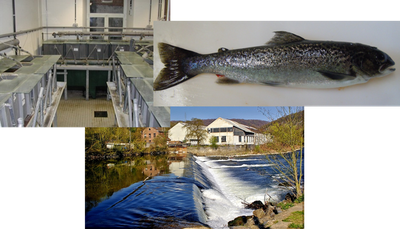Thesis defence by Benoît Bernard
- https://ilee.unamur.be/events/thesis-defence-benoit-bernard
- Thesis defence by Benoît Bernard
- 2018-04-26T15:00:00+02:00
- 2018-04-26T17:00:00+02:00
- Physiological response of smolts from two strains of Atlantic salmon, Salmo salar L., to a temperature increase on their migratory route
- When Apr 26, 2018 from 03:00 PM to 05:00 PM (Europe/Brussels / UTC200)
- Where Auditorium L12 – Faculty of Arts
- Contact Name
-
Add event to calendar
 iCal
iCal
In Belgium, the population of Atlantic salmon disappeared in the 1940’s. A restoration program in the Meuse Basin was launched in 1987. Despite many efforts, results are still poor with only few adult spawners captured.
E nvironmental data show temperature differences, sometimes exceeding 5°C, between a tributary and a larger river during the downstream migration period. Since temperature is a primary cue in smolting, we investigated the potential effects of such thermal conditions on smoltification. We looked for differences of various physiological smoltification markers between two strains of fish and between early and late migrants. We also examined the transcriptional response of smoltification-related genes in two crucial organs, the liver and gills. We then aimed at verifying our experimental results in the field by sampling smolts in two sites where temperature differences had been measured.
nvironmental data show temperature differences, sometimes exceeding 5°C, between a tributary and a larger river during the downstream migration period. Since temperature is a primary cue in smolting, we investigated the potential effects of such thermal conditions on smoltification. We looked for differences of various physiological smoltification markers between two strains of fish and between early and late migrants. We also examined the transcriptional response of smoltification-related genes in two crucial organs, the liver and gills. We then aimed at verifying our experimental results in the field by sampling smolts in two sites where temperature differences had been measured.
 Benoît will present the results of his PhD thesis he conducted in the Research Unit of Environmental and Evolutionary Biology (URBE) under the supervision of Patrick Kestemont and Robert Mandiki.
Benoît will present the results of his PhD thesis he conducted in the Research Unit of Environmental and Evolutionary Biology (URBE) under the supervision of Patrick Kestemont and Robert Mandiki. Institute of Life, Earth and Environment
Institute of Life, Earth and Environment
